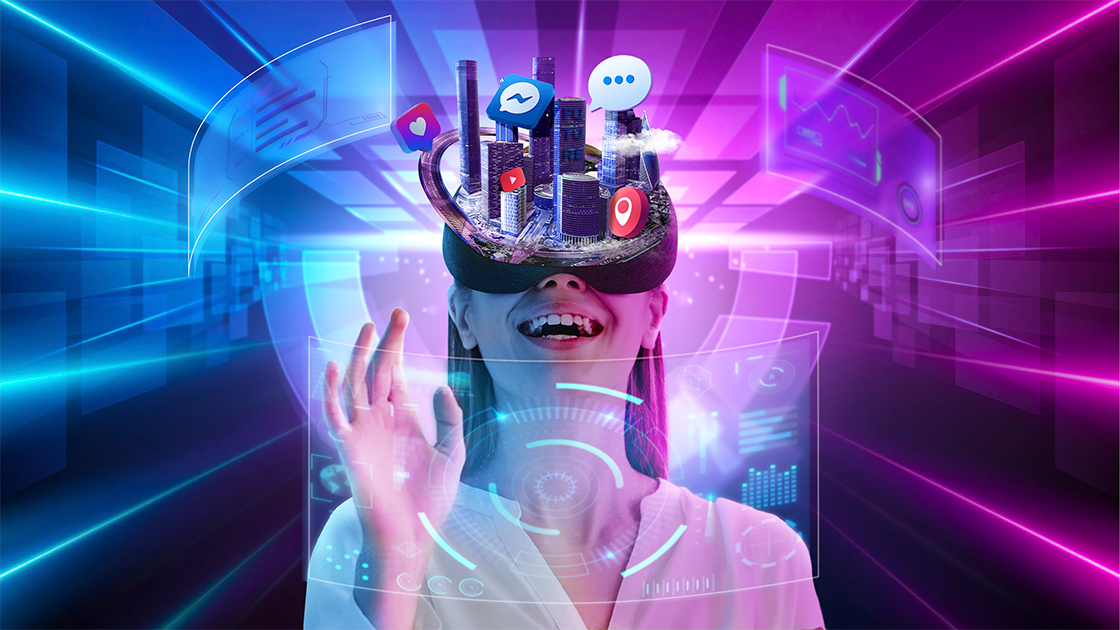The Metaverse: A New Digital Reality
The Metaverse, a term gaining popularity in the tech industry, refers to a new digital reality that combines virtual and augmented reality with advanced artificial intelligence and blockchain technology. This immersive virtual world allows users to interact with each other and with digital objects in a shared space and offers a new level of immersion and interactivity that is not possible in the physical world. The Metaverse is not just a game or social network, but a fully realized digital world that has the potential to transform the way we live, work and interact with each other.
One of the key features of the Metaverse is the ability to create and customize a digital avatar, which represents you in the virtual world and allows for personalized interactions with others. The Metaverse has potential benefits for social interaction, creating new economic opportunities, and revolutionizing industries such as healthcare, education, and real estate.
However, the Metaverse also presents challenges such as interoperability between different virtual worlds and the need for trust and security. It raises ethical questions around data ownership, perpetuating inequalities, and environmental impact.
Supporters of the Metaverse contend that it offers new opportunities for connection and creativity, despite concerns that it furthers our disconnection from the real world, and that it is our responsibility to use this technology in an ethical and responsible manner.
Over the past few years, the term "Metaverse" has become a popular buzzword in the tech industry, referring to a new digital reality that combines advanced technologies such as virtual and augmented reality, artificial intelligence, and blockchain. This virtual world allows users to interact with digital objects and other users in a shared space, simulating a physical world that users can explore and engage with.
The Metaverse is a fully-realized digital world that offers immersive experiences for users, enabling them to engage in various activities such as entertainment, education, and commerce. The Metaverse is more than just a game or social network; it's a virtual environment where users can create and customize their own digital avatars, interact with others, and explore new places without leaving their homes.
With its advanced technology, it allows for a new level of immersion and interactivity that is not possible in the physical world. Additionally, the Metaverse has the ability to create new economic opportunities in emerging industries such as virtual real estate, digital fashion, and virtual entertainment, leading to a more diverse and resilient economy.
While the Metaverse offers many potential benefits, there are also challenges that need to be addressed to make it a truly shared space. One of the biggest challenges is the need for interoperability between different virtual worlds, allowing users to move freely between platforms and experiences. Security is another challenge, as the Metaverse will be built on blockchain technology, which presents new security risks that need to be addressed by developers.
The Metaverse has the potential to become a new form of social infrastructure that connects people across the world and offers new opportunities for collaboration and creativity. As it continues to develop, it raises important ethical questions about data ownership, perpetuating existing inequalities, and its impact on the environment. However, with the right investments in technology and infrastructure, the Metaverse has the potential to become a new digital reality that benefits us all.
Also, check our other blog post,here

Leave a comment